Putin’s #1 Enemy Tortured, Imprisoned, But Not Broken
He has been forced to listen to the same speech by Putin on loudspeaker for 100 nights in a row.

Alexei Navalny, the prominent Russian opposition leader, has become one of President Vladimir Putin’s most formidable adversaries. Despite enduring poisoning, torture, and imprisonment, Navalny remains resilient and determined to bring about change in Russia. The UK Times and The Telegraph managed to reach his spokeswoman. Here are key facts about this courageous figure who refuses to be broken.

Navalny’s most recent trial began in June 2022. He faced additional charges of inciting extremism and rehabilitating Nazi ideology. Already serving a nine-year sentence on fabricated charges, Navalny could face another 30 years in prison.

During the trial, Navalny openly criticized the judge’s lack of independence and the restrictions imposed on him, such as denying his parents access to the courtroom. He humorously remarked on the extensive documentation provided to him, stating that it was impossible to discern the exact accusations against him.
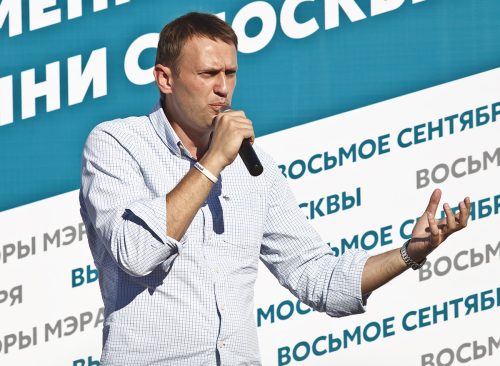
Navalny’s journey as a political activist began after the rigged parliamentary elections in 2011. He actively participated in protests against the government and later ran for Moscow’s mayoral office in 2013. His campaign aimed to expose corruption among Putin’s allies and utilized social media to mobilize support.
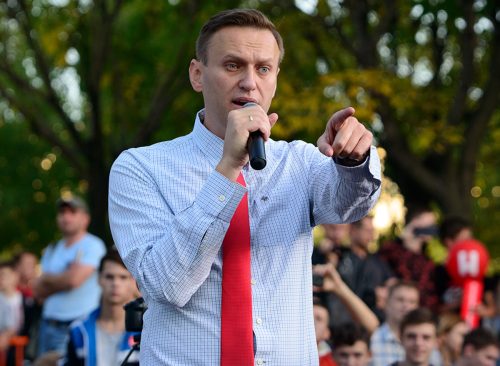
A lawyer by profession, Navalny gained prominence as a leader of massive protests against Putin in 2011-12. His online investigations into Kremlin corruption have garnered millions of views, making him a prominent figure in the fight against corruption in Russia. In 2018, he was barred from running in the presidential elections, and in 2020, he survived an assassination attempt using a Soviet-era nerve agent.
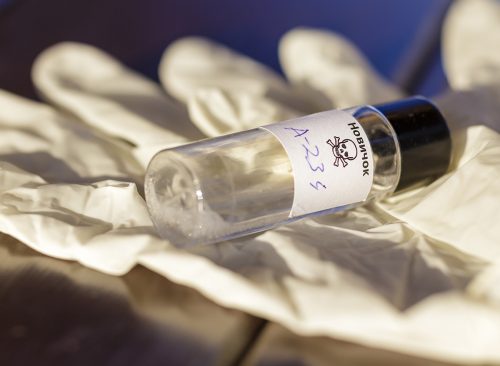
In August 2020, Navalny fell ill during a flight and was later found to have been poisoned with Novichok, a nerve agent associated with the Putin regime. After being treated in Germany, Navalny returned to Russia, only to be arrested upon arrival.

Navalny has staged several hunger strikes in prison to protest the lack of medical treatment and inhumane conditions. The hunger strikes have drawn international attention and highlighted the oppressive nature of Putin’s regime.
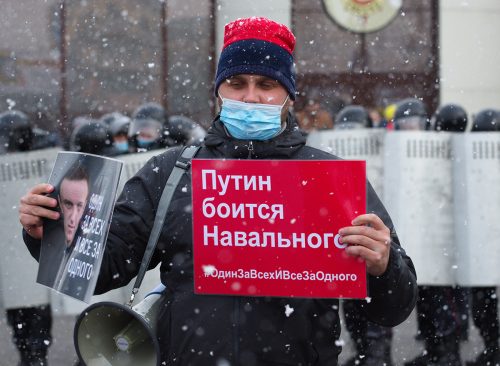
Despite his imprisonment, Navalny continues to inspire Russians who seek change and oppose Putin’s rule. He symbolizes defiance and bravery in the face of oppression, serving as a beacon of hope for those who desire a free and prosperous Russia.
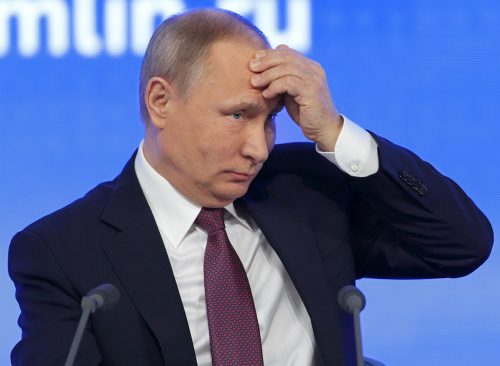
Navalny’s cause has gained global attention, with many world leaders, organizations, and activists advocating for his release. The international community has condemned Russia’s treatment of Navalny and called for his freedom.

Kira Yarmysh, Navalny’s spokeswoman and close aide, has been a steadfast supporter throughout his political career. Despite facing her own share of adversity, including imprisonment and exile, Yarmysh remains resolute in her belief that Navalny will lead a new Russia.
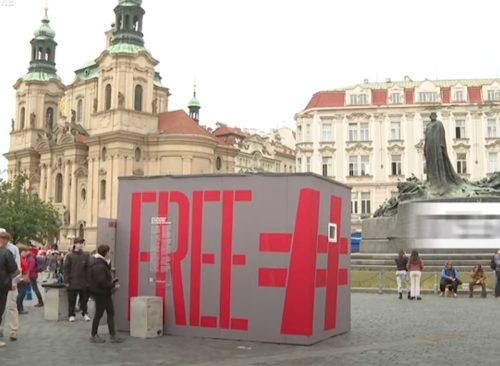
Navalny is held in the IK-2 penal colony, 60 miles east of Moscow. Reports indicate that he has spent months in solitary confinement within a tiny punishment cell. Critics argue that such treatment, including isolation and strict discipline for minor infractions, attempts to break his spirit. Recently, a mock-up of the cell was exhibited in Vilnius, Lithuania, as a symbol of his plight but was targeted by vandals.
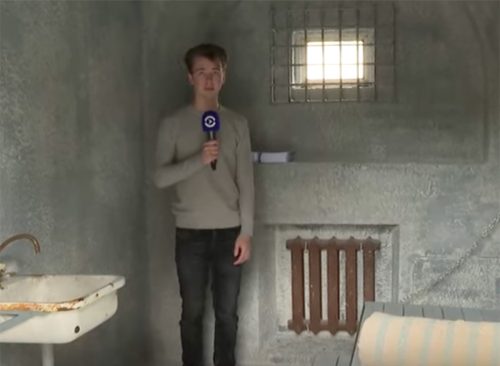
According to Yarmysh, Navalny has been primarily held in solitary confinement or a punishment cell for the past year. These cells are incredibly small, measuring barely six square meters, with no ventilation and minimal amenities. His bunk is attached to the wall from 5 am to 10 pm, and he is not allowed to lie on the floor. The cell contains only a stool as furniture, and there is no access to hot water. The lights are constantly on, and he is forced to listen to Russian state radio.

According to Navalny, prison guards have subjected him to Putin’s speech, playing it on loudspeakers outside his cell. The Russian opposition leader lodged complaints about this treatment. Still, officials justified it as a means to foster a “respectful attitude to society, work, and the norms and rules of human behavior.”
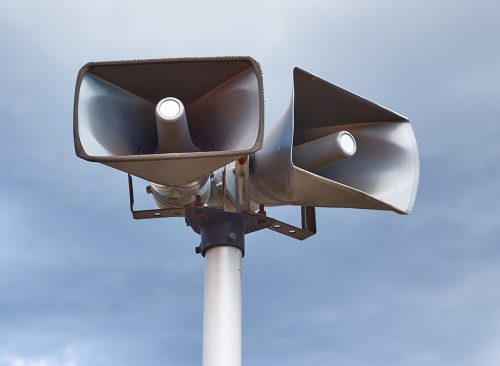
Navalny reportedly confronted a prison guard, questioning their sanity and requesting a different speech. In response, Navalny claims he was informed that Putin’s addresses to parliament would be played daily until his next one, scheduled for the following year.
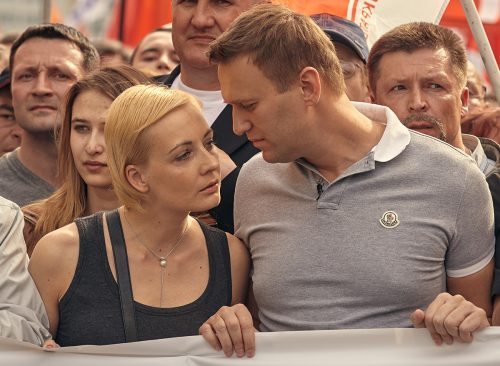
Navalny’s health has been a major concern. There have been reports of him experiencing severe stomach pain, significant weight loss, back pain, and deteriorating eyesight. Yulia Navalnaya, his wife, has expressed worries about his overall well-being and even raised concerns of possible slow poisoning. However, the Kremlin has downplayed these concerns, stating that his health is the responsibility of the federal prison service. Navalny has filed a lawsuit against the prison to seek dental treatment.

Navalny is allowed only one hour of exercise per day, which takes place at 7 am. Additionally, he engages in mandatory labor, sewing in a room adjacent to his cell with a single sewing machine. The lack of physical activity and prolonged confinement have likely contributed to his health issues and weight loss.
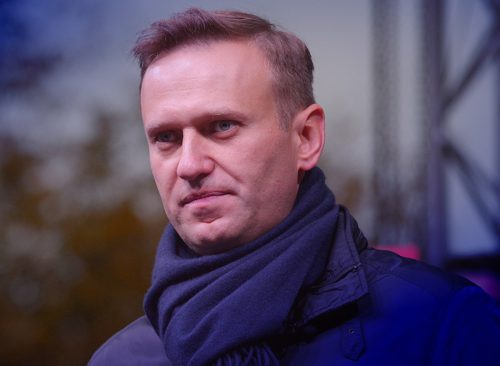
Navalny’s family has faced significant challenges in visiting him. Only his lawyers are permitted to visit, while his parents have not seen him for 14 months and his wife for 17 months. Navalny’s family recently launched a lawsuit against the penal colony for denying them visiting rights.
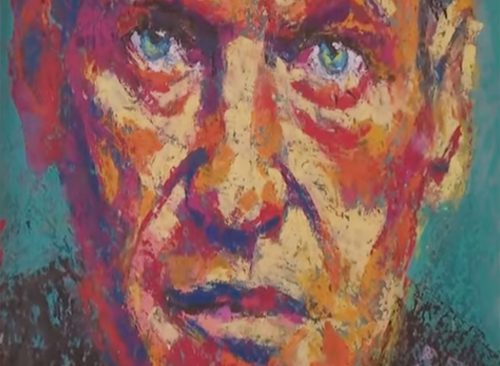
Yarmysh claims that Navalny remains resolute and unapologetic about his decision to return to Russia. She says that despite enduring over two decades of oppression from the Moscow regime, his spirit remains unyielding. “I know him. Nothing can break him. He has survived so much and sacrificed so much that I can’t see how any torture they come up with can break him,’ she says. ‘He honestly believes in what he’s doing. He wants Russia to be free and his children to grow up in a peaceful, prosperous country,” she told The Telegraph.
RELATED: The Fall of Putin: 7 Key Players That Could Bring Him Down
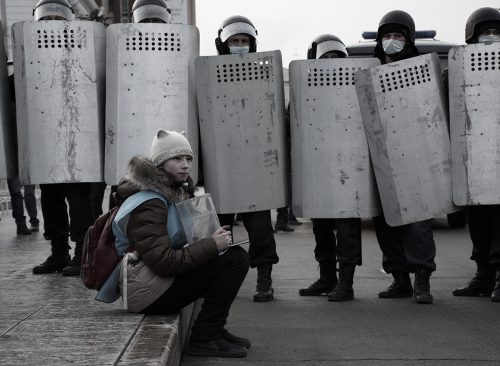
While the road ahead remains challenging, Navalny’s resilience and determination have contributed to the growing opposition against Putin’s regime. Despite the distraction caused by the Ukraine war, Navalny’s supporters believe that his cause will prevail and that a new era of democracy will emerge in Russia.














